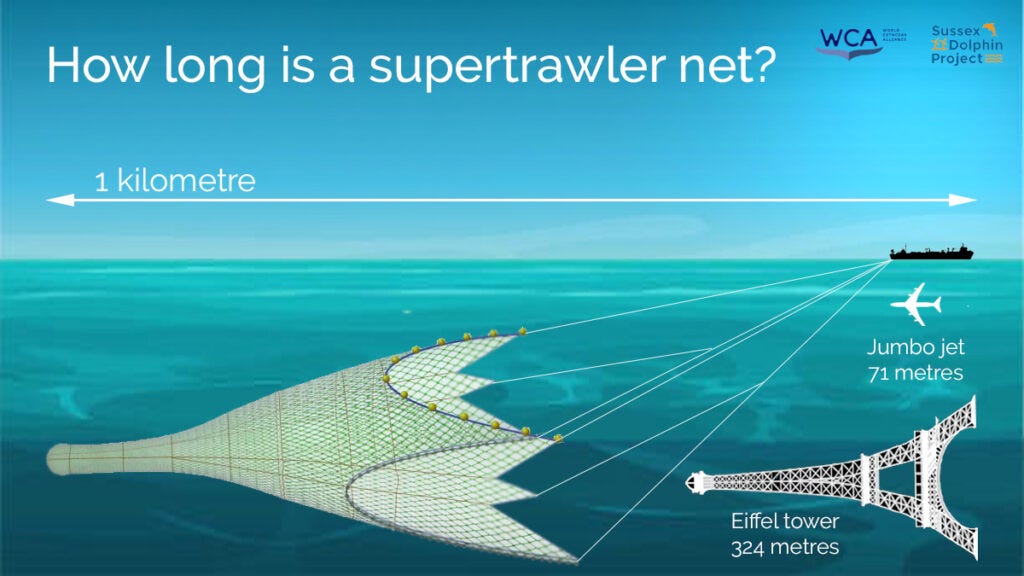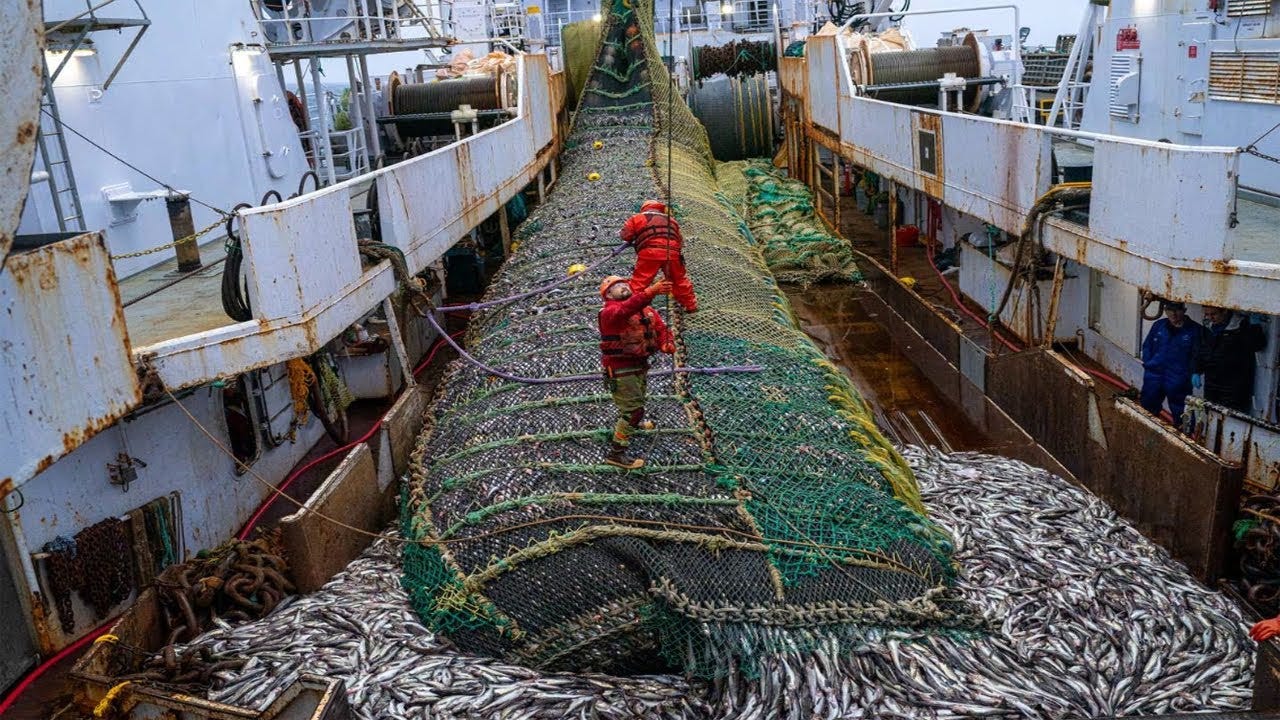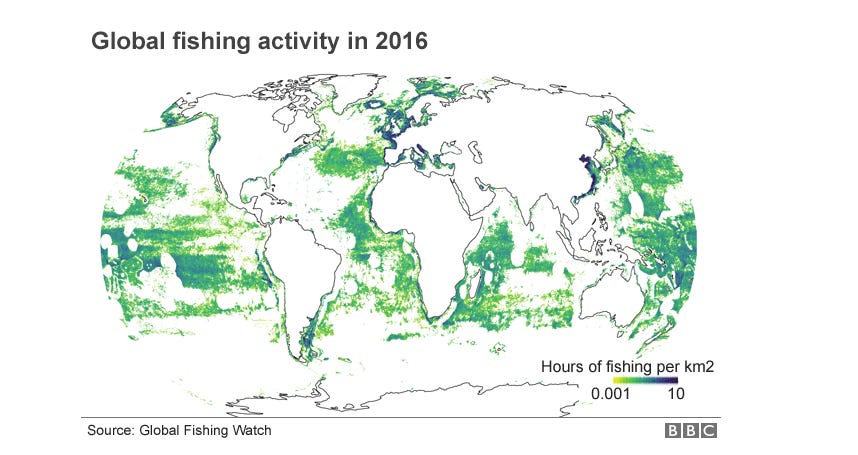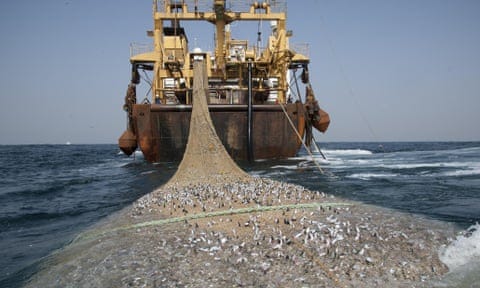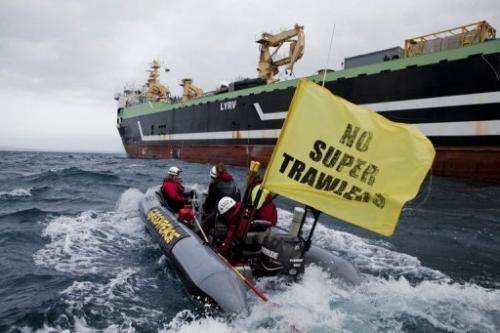Today’s newsletter is about some of the biggest — and most destructive — ships on Earth.
They’re called super trawlers.
These massive fishing boats drag humongous weighted nets behind them as a way of catching tens of thousands of pounds of fish per day.
A ship called the Atlantic Dawn, which was one of the biggest super trawlers ever, has been called:
“the greatest fish killing machine the world has ever seen.”
Some of these supertrawlers even have fish processing plants on board.
These plants, called “factory ships,” allow for the butchering and flash freezing of caught fish.
The biggest super trawlers can:
process 350 tons of fish per day, and
hold up to 7,000 tons of frozen fish.
They even use forklifts on the boat to help move the fish around.
Why are super trawlers a problem?
First, they contribute to the problem of overfishing.
Fishing sustainability is simple.
If humans catch fish at a rate that is faster than the fish can reproduce and replace the caught fish, the fish population will shrink over time.
Overfishing has been happening for decades, and we are already paying the price.
According to the World Wide Fund for Nature (WWF):
global fishing fleets are 2.5x larger than what the oceans can sustain
52% of the fisheries worldwide are fully exploited
24% of fisheries are overexploited or depleted
One study predicts that overfishing will cause ocean life as we know it to collapse by 2050.
The second problem with super trawlers is that they destroy aquatic ecosystems.
Unsurprisingly, the nets don’t just catch the fish that we eat. They catch everything.
Super trawler nets catch every fish that they can before sucking them into the hull of the ship with a giant tube.
Trawler nets are death traps for seals, dolphins, sharks and turtles.
Many of the unwanted fish and sea creatures caught in the trawlers are thrown back overboard.
The practice of throwing dead fish back in the sea, called high-grading, is illegal in the E.U. and elsewhere around the world.
In 2015, an Irish court convicted the captain of the Atlantic Dawn supertrawler on charges of violating these regulations and fined him for €105,000.
And in 2022, a Dutch-owned supertrawler dumped 100,000 dead blue whiting fish off the coast of France. (see below)

What’s being done about super trawlers?
Some countries, like Australia, have banned super trawlers from fishing in their waters.
Other countries are still struggling to deal with the problem.
Research from Greenpeace found that 26 supertrawlers spent a collective 4.2 years fishing in the United Kingdom's Marine Protected Areas (MPAs) between January 2020 - January 2025.
These MPAs are meant to be protected from industrial fishing, and most of the trawlers identified in the research were registered to foreign nations.
Over the past few years, more than 750,000 people signed a petition demanding that the British government ban super trawlers from MPAs.
Fish are a global resource, and it will take internationally coordinated action to protect our oceans from overfishing & from the damage done by these super trawler ships.




